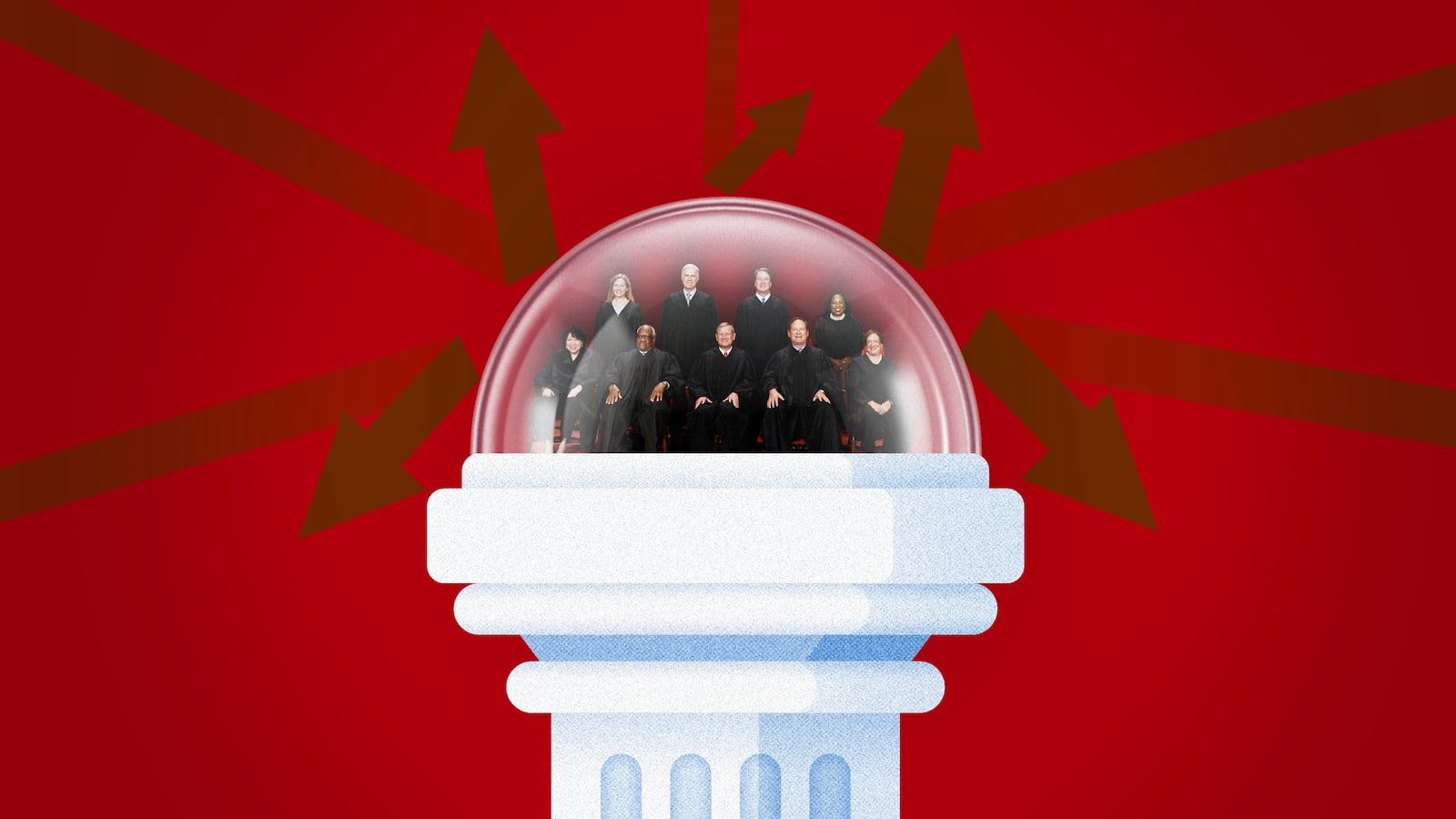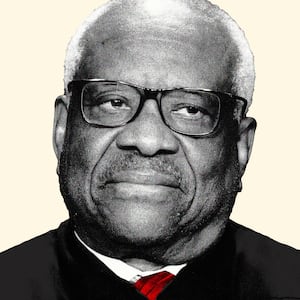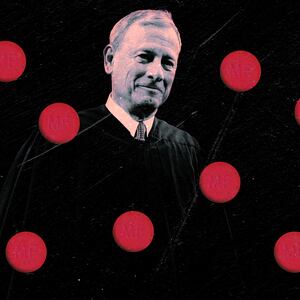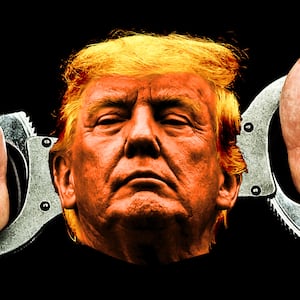The only thing the Supreme Court seems united about is its refusal to adopt a judicial ethics code.
Despite being rift by historically high tensions and distrust following the leak of the Dobbs draft opinion, all nine justices signed a statement in which they effectively rejected adopting a mandatory code of ethics for the nation’s highest court—the only court that functions without a judicial ethics code.
Their statement was attached to a letter from Chief Justice John Roberts declining the invitation from Sen. Richard Durbin (D-IL)—chair of the Senate Judiciary Committee—to testify about issues involving the previously unreported gifts, travel and real estate transactions between Justice Clarence Thomas and billionaire conservative activist Harlan Crow.
The luxury travel— including one trip by chartered jet and that included a cruise on a superyacht, given to Thomas for free by Crow—is estimated to be worth hundreds of thousands of dollars.
Roberts’ letter itself is a classic erudite piece of work, referencing research from the Supreme Court Library that identified only two previous instances of chief justices testifying (CJ Taft in 1921 and CJ Hughes in 1935), which Roberts pointed out was testimony about “routine matters of judicial administration.” He added that only three U.S. presidents have testified before any congressional committee. Roberts suggested that his testimony would be a potential separation of powers issue.
The tone-deaf insinuation in Roberts letter is that Chief Justices should only testify about unimportant “administrative matters” and not important matters concerning a justice’s potential integrity.
But the real shocker is what he appended to the letter—a “Statement of Ethics Principles and Practices” in which liberal and conservative justices alike all unanimously endorse the current “trust us we are the Supreme Court” approach to ethics and recusals.
The statement basically parrots Roberts’ 2011 Report to the Federal Judiciary in which he asserted that SCOTUS has no need for a code of ethics because the justices can seek ethical guidance from a variety of sources, including other justices. This last guidance is exactly what Justice Thomas claimed to have done in making his decision not to disclose the financial benefits he got from conservative billionaire Crow. Of course, Thomas did not name the colleagues who gave him this legal guidance.
The statement by the justices ends by citing their worries over security guidance implying that ethical matters (such as disclosures) need to take a back-seat to worries about their safety.

Supreme Court Associate Justice Clarence Thomas and Chief Justice John G. Roberts react during a group portrait at the Supreme Court in Washington, DC on Oct. 7, 2022.
Evelyn Hockstein/ReutersLet’s start by debunking these “safety concerns.”
Safety concerns relating to financial disclosures are a red herring, given the fact disclosures about travel and costs are not done in real-time, but at the end of a year. Year-end financial disclosures to ensure the integrity of the court are hardly the kind of on-line doxxing the justices seem to be worried about. In addition to that, as Justice Samuel Alito recently asserted, he has no concerns about his personal safety, as he travels in what he describes as “basically a tank” and with his police force guards.
So what else might the justices be worried about if they were forced to have a code of ethics?
Perhaps they fear the abuses of powers being exercised now by the Republican House majority that is acting like a Joe McCarthy-era Committee on Un-American Activities (just substitute “Trump Investigations” for “Un-American”). The Republican-controlled House gives one reason to worry, since it has shown no hesitation to take such actions as seeking to interfere with an ongoing state criminal prosecution.
But while such worry might be understandable—particularly on the part of the liberal justices—allowing this worry to stop ethical accountability for themselves is a sadly short-sighted view.
The current system is being revealed as unworkable in a constant stream of new disclosures. Besides Justice Thomas’ friends-with-benefits relationship to billionaire Crow, new reporting reminds us of numerous non-disclosures of financial benefits to the justices.
Chief Justice Roberts himself benefited from his wife Jane’s work as a legal headhunter—for which she was paid commissions from work done for some of the nation’s largest law firms, including ones that argue before her husband.
In a profession where professional networking usually takes years to build, Jane Roberts began her work as a headhunter two years after Roberts became Chief Justice, and quickly amassed an impressive income. According to a whistleblower complaint disclosed by Insider, she generated more than $10 million in commissions between 2007 to 2014, which Roberts listed as “salary from her employer”—a categorization which essentially hid the fact that the money was actually commissions paid by law firms—some of which argued before SCOTUS.

Supreme Court Associate Justices Brett Kavanaugh, Neil Gorsuch and Elena Kagan talk during a ceremony at the White House in Washington, DC on Nov. 16, 2018.
Jonathan Ernst/ReutersJustice Neil Gorsuch was not required to disclose the identity of who he had sold property to—just nine days after he was confirmed. (The property previously had remained unsold for two years before his confirmation.) Gorsuch properly disclosed the sale and amount, but was not required to name the buyer—who happened to be the head of a law firm doing business before SCOTUS.
The newest revelation is reporting by The New York Times on how the Scalia Law School (formerly George Mason’s law school) has cultivated close ties with current justices in an effort to build their reputation. That cultivation includes offering justices Gorsuch, Kavanaugh, and Thomas paid teaching positions for two-week summer courses—some of which are in Italy, England, and Iceland.
For example, in Gorsuch’s case the teaching gig included free transportation and accommodations in what the law school described as an “‘aristocratic’ antique-filled apartment in the heart of the old town.” Justice Brett Kavanaugh was given a similar arrangement to teach in England. This summer, Gorsuch will teach in Portugal.
Other universities have done similar arrangements—Justices Ruth Bader Ginsburg and Sonia Sotomayor were sent by NYU to conferences in Portugal, and Alito was paid by Tulane to teach in Berlin and Paris.
Again, the justices are not required to disclose the value of these perks—only the fact of the travel. But the public records obtained by The New York Times indicate that airfare and accommodations for Gorsuch’s trips to Italy and Iceland would be valued at many thousands of dollars.
As is often repeated, SCOTUS is not a self-enforcing arm of the government. It depends on public trust for its power, and right now that trust is at an all-time low.
Yet the unanimous opinion of all nine justices is to defy the ethical accountability and transparency of an enforceable code of ethics. In this sense the high court seems united in its determination to keep dragging its own esteem ever lower.









